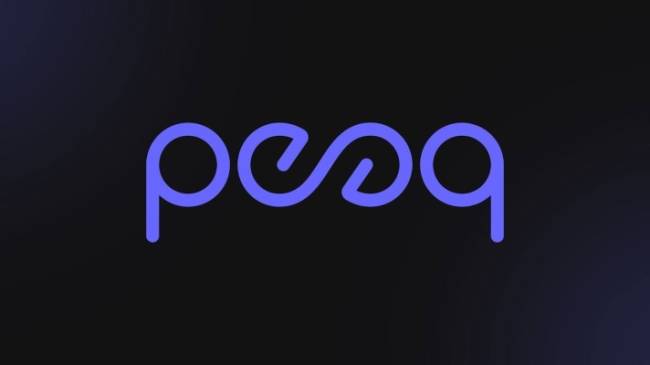Table of Contents
What is peaq?
peaq Network is a Layer 1 blockchain that has been specifically designed to cater to the needs of DePINs and Machine Real World Assets (RWA). The network's primary objective is to provide a robust and scalable platform for the development and deployment of DePIN applications, enabling seamless interactions between devices, machines, and the physical world.

peaq Network's key features
Here are peaq Network's key features that make it an ideal platform for DePIN projects:
- High throughput: The peaq Network is capable of handling over 100,000 transactions per second (TPS) with low transaction costs, ensuring efficient and scalable operations for DePIN applications.
Super Decentralized: peaq has a Nakamoto Coefficient of 90+. The highest among major Layer-0 and Layer-1 blockchains. - Cross-chain compatibility: The peaq Network integrates with the Wormhole protocol, allowing for seamless interaction with other blockchains, including Ethereum, BNB Chain, and Polkadot. This cross-chain compatibility enables DePIN projects to leverage the strengths of multiple blockchain ecosystems.
- Scalability and sustainability: The peaq Network utilizes Elastic Scaling and Agile Core Time technologies to maintain high transaction volumes (100,000 transactions per second) while ensuring energy efficiency and sustainability.
- Developer-friendly: The peaq Network supports both Ink! (Rust) and Ethereum Virtual Machine (EVM) smart contracts, providing developers with flexibility and choice in their development approach.
- Growing ecosystem: The peaq Network has already attracted over 25 DePIN projects, including Eloop, a car-sharing platform, showcasing the platform's appeal and the growing ecosystem of DePIN applications.
Modular DePIN Peap functions on peaq Network
The peaq Network provides pre-built functionalities for essential DePIN components. These functionalities are accessible through the peaq SDK, enabling developers to quickly build and deploy their DePIN applications.
peaq ID
peaqID is a decentralized identifier (DID) designed for machines, devices, vehicles, and robots in Web3. Based on the W3C DID standard, it enables verifiable, decentralized digital identity for these entities. peaqID serves several key functions:
- Enabling machines to identify and authenticate one another
- Facilitating transactions between machines
- Verifying assertions made by machines
- Preserving privacy and upholding sovereignty
peaq access
peaq access is a robust feature enabling sophisticated access control within the peaq network. By defining user roles, it allows developers to manage permissions for decentralized physical infrastructure networks (DePINs) and decentralized applications (dApps). This versatility empowers dApp developers to create diverse use cases within the Economy of Things, such as granting or denying car usage in a car-sharing dApp or controlling access to specific locations based on user privileges.
peaq pay
The peaq pay feature simplifies payments between machines or users and machines. When interacting with Decentralized Physical Infrastructure Networks (DePINs), users often encounter difficulties ensuring that the service will be fully completed before payment. Conversely, DePINs face the challenge of ensuring users have sufficient funds to cover the service cost. peaq pay addresses these issues through a three-step process:
- Creation of a multi-sig wallet: The service user is required to deposit the amount needed for the service into a shared wallet.
- Funding the multi-sig wallet: This is done by transferring funds from the sender's existing wallet on the network.
- Approving transactions: After the service is successfully completed, the funds are released to the service provider, and the user is refunded any remaining balance.
peaq verify
peaq verify, a multi-tiered framework developed by peaq, aims to establish a secure and decentralized method for verifying physical machine data within Decentralized Physical Infrastructure Networks (DePINs). The framework is divided into three tiers:
- Tier 1 Verification: Machine-Origin Authentication
- Tier 2 Verification: Pattern Matching Validation
- Tier 3 Verification: Oracle-Backed Authentication

AI-Agents
The peaq network has integrated Fetch.ai's autonomous agents, enabling the deployment of AI-Agents on the platform. This empowers peaq's entrepreneurs and developers to utilize Microagents for streamlining and automating diverse business operations within the Economy of Things.
Featured DePIN peaq Projects on the peaq Network
The peaq Network has already attracted a diverse range of DePIN projects, each leveraging the platform's unique capabilities to address various challenges in the physical infrastructure domain. Some of the featured DePIN peaq projects:
Eloop: Decentralized car-sharing platform
Eloop is a decentralized car-sharing platform that has been built on the peaq Network. The platform aims to revolutionize the way we access and use transportation services by leveraging blockchain technology to create a secure, transparent, and user-centric car-sharing ecosystem.
Key features of Eloop
- Self-Sovereign Machine IDs: Eloop utilizes the peaq Network's Self-Sovereign Machine ID system to uniquely identify and manage the vehicles in the car-sharing network.
- Autonomous Access Control: The platform integrates autonomous access control mechanisms, allowing users to securely access and use the shared vehicles without the need for centralized intermediaries.
- Decentralized Payment Processing: Eloop's payment processing is decentralized, enabling seamless and secure transactions between users and vehicle owners, facilitated by the peaq Network's machine payment capabilities.
- Data Transparency: The platform leverages the peaq Network's data management features to provide users with transparent and auditable records of vehicle usage, maintenance, and overall performance.
- Scalability and Efficiency: Eloop's integration with the peaq Network's high-throughput and energy-efficient infrastructure ensures that the platform can handle the increasing demand for car-sharing services without compromising user experience or environmental sustainability.

MapMetrics: Web3 drive-to-earn navigation app
MapMetrics is a Web3 drive-to-earn navigation app that has migrated from the Solana blockchain to the peaq Network. The app aims to incentivize users to contribute to the development and maintenance of detailed maps by rewarding them for their driving and navigation activities.
Key features of MapMetrics
- Decentralized mapping: MapMetrics leverages the peaq Network's decentralized infrastructure to crowdsource and maintain highly accurate and up-to-date maps powered by the contributions of its user base.
- Drive-to-earn rewards: Users are rewarded with native tokens for their driving and navigation activities, incentivizing them to actively contribute to the development and improvement of the mapping data.
- Machine-to-machine interactions: The app integrates with the peaq Network's machine payment and autonomous agent capabilities, enabling seamless interactions between vehicles and the mapping infrastructure, further enhancing the efficiency and automation of the platform.
- Cross-chain compatibility: MapMetrics' migration to the peaq Network showcases the platform's cross-chain compatibility, allowing the app to leverage the strengths of multiple blockchain ecosystems and access a wider range of services and resources.
- Developer-friendly environment: The peaq Network's support for both Ink! (Rust) and EVM smart contracts made it an attractive choice for the MapMetrics team, as it allowed them to utilize their existing development expertise and tools.
The decision by the MapMetrics team to migrate their application from Solana to the peaq Network highlights the platform's appeal for innovative DePIN projects.

Other featured DePIN Projects on peaq Network
In addition to Eloop and MapMetrics, the peaq Network has attracted a diverse range of other DePIN projects, each leveraging the platform's unique capabilities to address various challenges in the physical infrastructure domain. Some other featured DePIN projects on the peaq Network include:
- Wingbits: Community-run antenna network to collect aircraft location data
- Silencio Network: Application to measure noise pollution using smartphones
- bloXmove: The company built the framework for Web3 Uber on peaq
- Acurast: The company is decentralizing the cloud computing industry with mobile-first DePIN for distributed computing.
- AYDO: The company is building a Web3 alternative to Big Tech smart home platforms
- Farmsent: Empowering over 160,000 Asian and South American farmers through Web3 technology for greater control over their agricultural sales.

The future of the DePIN Peap project on the Peaq Network
peaq's technological superiority is showcased by its exceptional scalability, security, and commitment to environmental sustainability. Through innovative technologies like Elastic Scaling and Agile Core Time, the network can process over 100,000 transactions per second by 2025, ensuring it can meet the demands of a rapidly expanding ecosystem. Furthermore, peaq is also at the forefront of sustainability, employing the most eco-friendly blockchain architecture in Web3.
peaq's influence extends globally, evident in its thriving community and numerous partnerships. With more than 25 DePIN peaq projects, including the recent additions of Parasail, Particle Network, Nevermined, and Olas to the peaqosystem further underscore peaq's growing impact and commitment to cultivating a robust and interconnected community.
Looking towards the future, peaq is set to launch over 500.000 machines, vehicles, robots, and devices, solidifying its position as the world's fastest-growing DePIN ecosystem. With a steadfast focus on innovation and expansion, peaq is dedicated to building a decentralized future where physical infrastructure is optimized for efficiency, security, and accessibility.
In conclusion, the peaq Network is leading a new era of dePIN peaq projects, leveraging scalability, sustainability, and developer-friendly features. This initiative is reshaping our interaction with the physical world by encouraging collaboration and fostering innovation.
The peaq Network envisions a future where decentralized physical infrastructure plays a pivotal role in creating a smarter, greener, and more interconnected world.
For those interested in exploring the potential of DePIN peaq projects and their practical applications, further insights can be found on platforms like the U2U Network, which offers comprehensive resources and updates on ongoing developments in the crypto market and DePIN projects.



.png)


